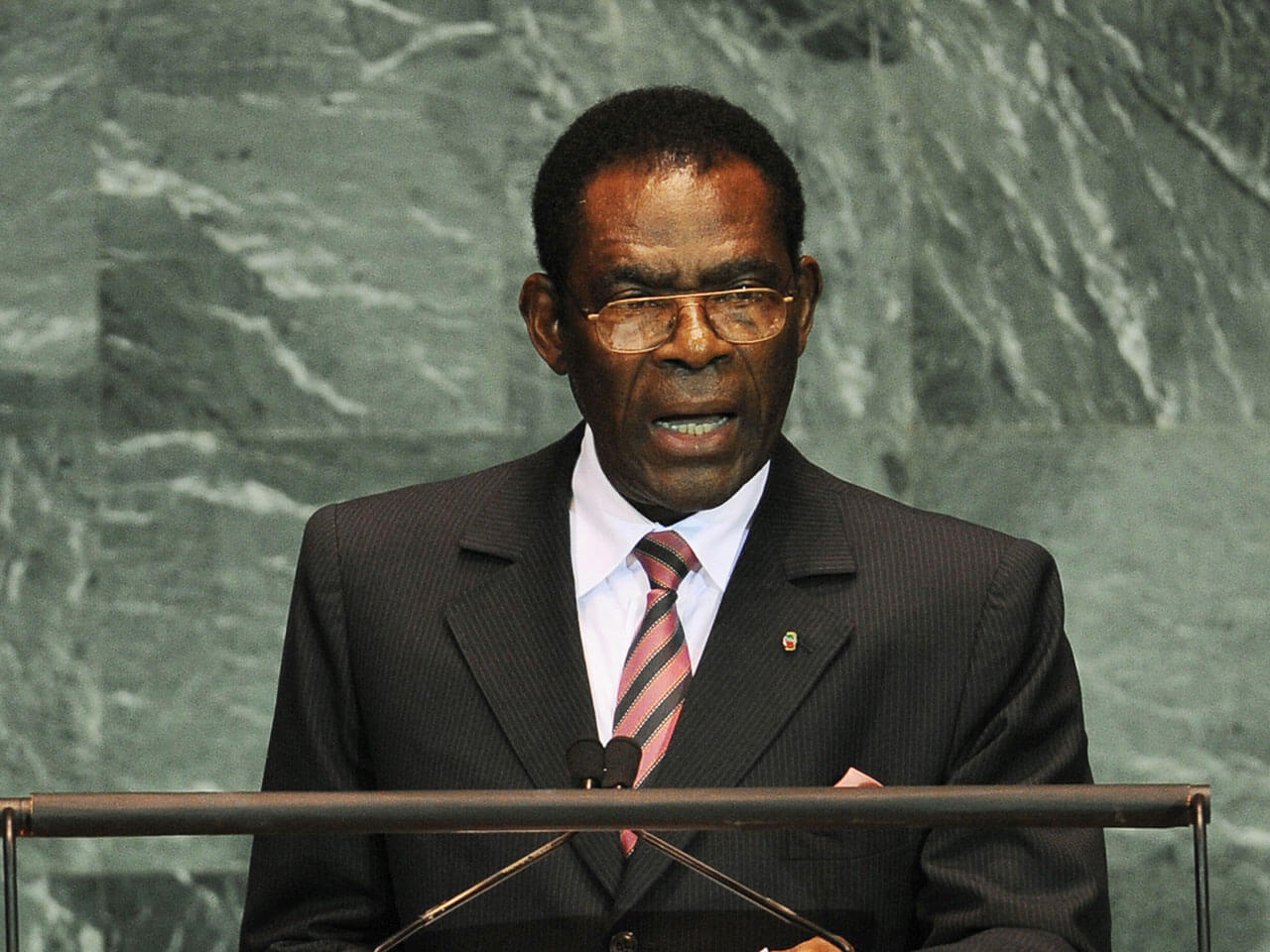Equatorial Guinea confirmed on Saturday that President Teodoro Obiang Nguema Mbasogo has been elected for a sixth consecutive term. With seven more years in office, Obiang will take his tenure to 50 years, making him the world’s longest-serving leader with the exception of monarchs.
The Central Election Commission said Obiang won 94.9% of the votes, with a voter turnout of 98%.
“The results of the general election solemnly proclaim His Excellency Obiang Nguema Mbasogo President of the Republic of Equatorial Guinea for a term of seven years,” the commission said.
According to reports, Obiang had the support of 15 parties, including his own Democratic Party of Equatorial Guinea (PDGE), which holds 99 out of 100 seats in the lower house of parliament. His party holds all of the seats in the Senate.
Equatorial Guinea President Teodoro Obiang has managed to turn the tide, reversing the steady ‘drop’ in popularity of the last few elections. 🤥
— Javier Blas (@JavierBlas) November 27, 2022
1989: 99%
1996: 98%
2002: 97%
2009: 96%
2016: 93%
2022: 95% https://t.co/5ApFxlchXf
Equatorial Guinea held presidential elections on 20 November, with Obiang expected to cruise to victory, as the 80-year-old has won all elections he contested with at least 93% of votes. Obiang, already in power for 43 years, said immediately after the election: “I am sure that the victory is for PDGE.”
“I am the symbol of peace that reigns in Equatorial Guinea,” he asserted. His son Teodoro Nguema Obiang Mangue said his father’s victory would be the right choice for Guineas because “an old friend is better than a new one.”
However, opposition parties claimed that the election was rigged in favour of Obiang. Andrés Esono Ondo, one of the candidates, called the vote a “total fraud,” and said he would challenge the result in court. He also claimed that his party had evidence that officials had cast votes on behalf of the voters and in some instances forced voters to vote for Obiang.
Equatorial Guinea big man Teodoro Obiang Nguema Mbasogo, the world's longest-ruling president, is seeking re-election to continue 43-year rule in elections today. Which things hadn’t been invented, and influential people hadn’t been born when he seized power in a 1979 coup? 1/2 pic.twitter.com/ahAig2iWTy
— Charles Onyango-Obbo (@cobbo3) November 20, 2022
Regime officials reportedly arrested several opposition figures on the eve of the vote, accusing the opposition of conspiring to commit attacks in Malabo and Bata.
According to the Freedom in the World 2022 report, Equatorial Guinea has been labelled as “not free” and an authoritarian state that suppresses political and civil rights. Per the report, while the country holds regular elections, “voting is neither free nor fair.” It also ranks 172nd out of 180 nations on Transparency International’s 2021 Corruption Perceptions Index.
Obiang came to power in 1979, when he ousted his uncle Francisco Macias Nguema and 11 years after gaining independence from Spain, and has since been leading a highly repressive authoritarian regime. Multi-party politics was only introduced in 1991.
“The government frequently detains the few opposition politicians in the country, cracks down on civil society groups, and censors journalists. The judiciary is under presidential control, and security forces engage in torture and other violence with impunity,” it notes.
Furthermore, the World Bank estimates that 76% of the population lives in poverty, while 75% don’t have access to the internet.
The Obiang family has also been embroiled in a number of corruption scandals. In fact, it closed its embassy in London last year after the United Kingdom sanctioned Obiang’s son, Vice President Teodoro Nguema Obiang Mangue, for his “involvement in the misappropriation of state funds into his own personal bank accounts, corrupt contracting arrangements and soliciting bribes, to fund a lavish lifestyle inconsistent with his official salary as a government minister.”
In fact, when Obiang’s son previously served as the Minister of Agriculture and Forestry, he implemented a ‘revolutionary tax’ on timber and stipulated that the payments must be made “directly to him or a company he owned.”
The UK’s Foreign, Commonwealth, and Development Office said the decision was motivated in part by the Obiang’s misappropriation of around $500 million, which includes the purchase of a $100 million mansion in Paris as well as a $38 million private jet. The sanctions included an asset freeze and a ban on his entry to the UK.

